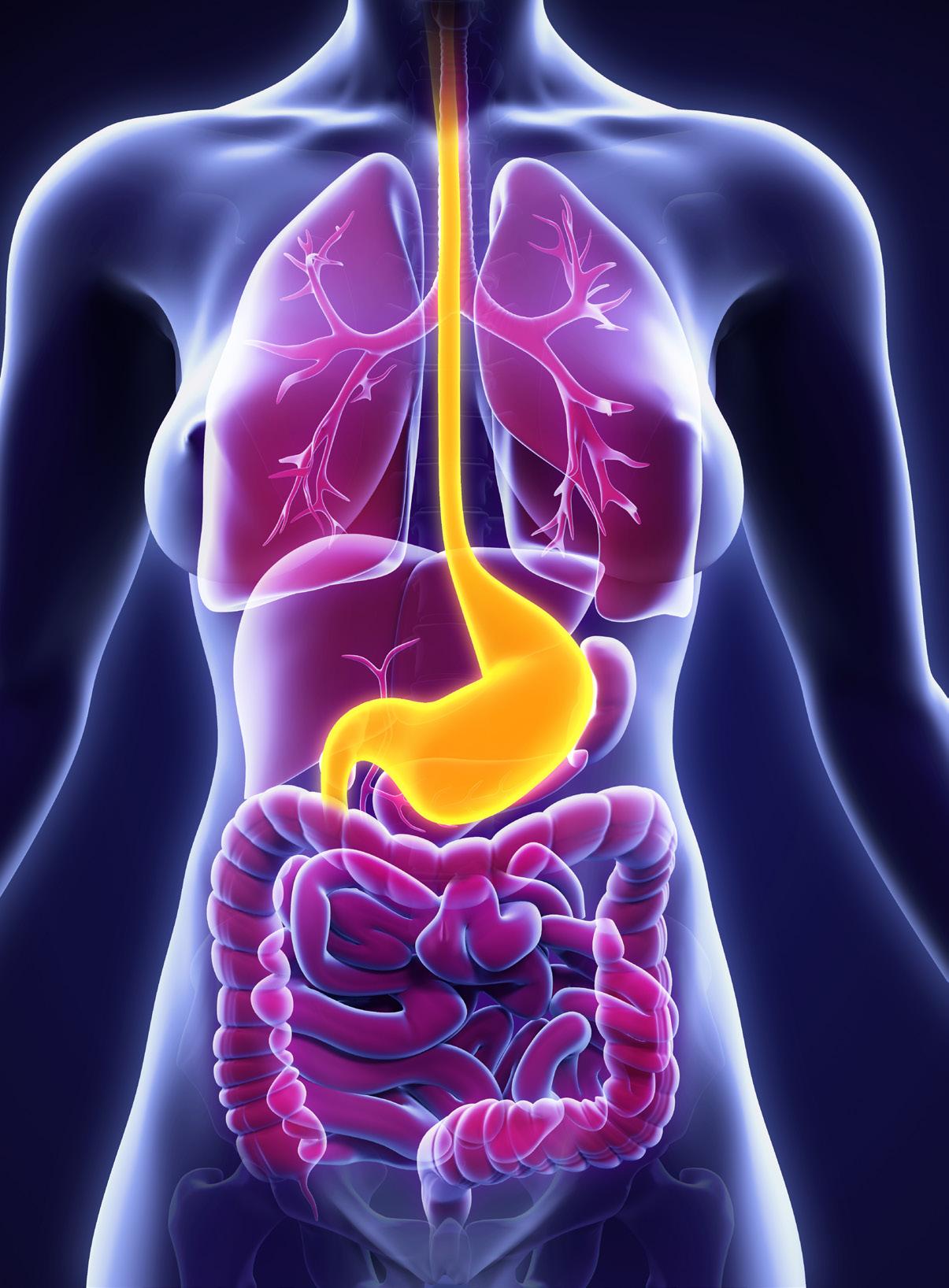
5 minute read
Trust Your Gut
from Pulse
When GI symptoms should prompt a doctor visit
Written by Lisa Buffington
Digestive disorders affect millions of Americans each year. When symptoms cause significant or prolonged discomfort, they should prompt a visit to a primary care provider or gastroenterologist.
“Gastrointestinal (GI) disorders can include gastroesophageal reflux disease (GERD), irritable bowel syndrome, hiatal hernia, inflammatory bowel disease, lactose intolerance and celiac disease, as well as cancer,” says Shahina Hakim, MD, a gastroenterologist at Torrance Memorial Medical Center. “Some of these conditions can cause similar, overlapping symptoms such as nausea, vomiting, bloating, rectal bleeding, trouble swallowing, abdominal pain, constipation, diarrhea and weight loss, so it’s important to get an accurate diagnosis from a health care provider if you notice something is ‘off’ or isn’t getting better over time.”
“It is so important for patients to advocate for themselves and seek medical care if they are experiencing concerning symptoms,” says Tonny Lee, MD, a gastroenterologist at Torrance Memorial Medical Center. “If someone has a family history or risk factors for gastrointestinal conditions, such as colorectal or esophageal cancer, it’s especially critical to get symptoms checked out and be extra vigilant about ongoing monitoring.”
Clues to Guide Testing and Diagnosis
Dr. Hakim says the symptoms a patient is experiencing provide clues that can be used to guide the diagnostic process. “If the symptoms are in the upper GI tract, such as the esophagus or stomach, we might order blood work and an endoscopy to look at the lining of the esophagus, stomach and beginning of the small intestine. We may also order blood work for lower GI symptoms, but instead of an endoscopy, we would order a colonoscopy to look at the colon lining.”
Dr. Hakim says in some cases, imaging studies such as an abdominal CT scan or barium-swallow X-rays can be useful in diagnosing the cause of a patient’s symptoms. Dr. Lee says breath tests, stool tests and other studies can also be helpful.
Diagnostic Procedures Help Pinpoint Conditions
During an endoscopy, a gastroenterologist inserts an endoscope—a thin, hollow tube with a light and video camera at the tip—through the mouth. The video camera transmits a magnified, real-time image of the upper digestive tract to a video monitor, which allows the gastroenterologist to look for problems and use special tools to take tissue samples which can be analyzed in the lab.
A colonoscopy is performed using a similar instrument called a colonoscope. The gastroenterologist inserts the colonoscope through the rectum, inspects the entire colon and takes biopsies as needed. If the gastroenterologist sees small growths in the colon lining called polyps, they may be able to remove them before they can develop into colon cancer.
“Taking biopsies can help us diagnose conditions that might not be visible to the naked eye, such as inflammation caused by microscopic colitis, changes associated with celiac disease, bacterial infection from Helicobacter pylori or a high number of eosinophils associated with eosinophilic esophagitis,” says Dr. Hakim.
Start with an Accurate Diagnosis
Having a colonoscopy or endoscopy may seem inconvenient, but combining these gold-standard tests with blood work, biopsies and imaging is the best way to help a gastroenterologist deliver an accurate diagnosis—and get patients on the path to feeling better.
“Some disorders, such as irritable bowel syndrome, indigestion and other conditions, are functional conditions that can only be diagnosed after other problems are ruled out,” says Dr. Hakim. “After we arrive at an accurate diagnosis, we can develop an effective treatment plan.”
Many people experience occasional heartburn caused by acid reflux, but when it isn’t well controlled using over-thecounter medications or happens frequently, a visit to the gastroenterologist can help to determine if the symptoms are caused by GERD. Reflux officially becomes GERD when contents from the stomach make their way back to the esophagus at least once a week, or when a person experiences other symptoms of reflux on a weekly basis. Almost half of North Amer- icans suffer from reflux once a month, and 10% to 20% have full-fledged GERD.
“Everyone has heartburn once in a while, and there are lots of over-thecounter medications available,” says Dr. Lee. “But when someone is having frequent heartburn and over-the-counter medications aren’t helping, they should see a gastroenterologist.”
An Integrated Physician Network
Dr. Hakim says she works with other clinicians—including dietitians, primary care providers, allergists and mental health providers—to develop a plan to meet each patient’s needs and focuses on improving overall digestive health.
“I talk to patients about focusing on eating whole foods instead of processed items high in saturated fat, as well as taking steps to improve overall health such as getting adequate sleep, limiting alcohol and quitting smoking,” says Dr. Hakim. “And because stress can be both a trigger and a symptom of digestive conditions, I help patients understand the mind-body connection and discuss stress management as part of their treatment plan.”
“Torrance Memorial has an integrated network of physicians who work together to focus on all aspects of patient well-being, and options like telemedicine make it even easier for patients to access the GI care they need,” says Dr. Lee. “We’re here to help, and we want patients to reach out instead of ignoring their symptoms.” •
DON’T WAIT TO SEEK CARE FOR SYMPTOMS
Understanding what is normal for your body—and seeking medical attention when something seems “off”—is critical to maintaining your digestive health. This is especially important if you have a family history or are at high risk for certain GI conditions.
Although it might be easy to attribute uncomfortable digestive symptoms to stress, something you ate or a particularly severe stomach bug, some symptoms shouldn’t be ignored. Schedule an appointment with your primary care provider or gastroenterologist if you notice symptoms including:
• Rectal bleeding
• Trouble swallowing that doesn’t go away
• Unexplained weight loss
• Changes in bowel habits that don’t return to normal over time
• Vomiting or nausea with no obvious cause
• Black stools
• Persistent pain










